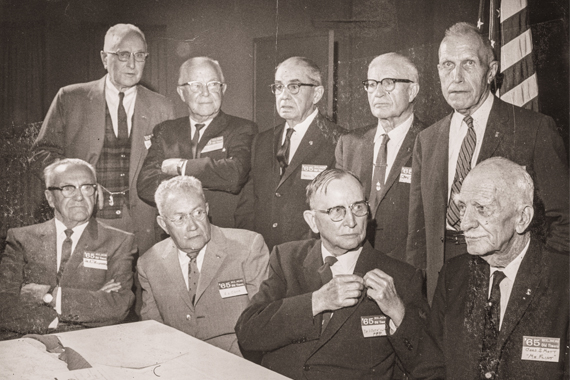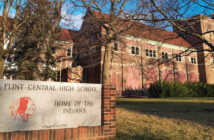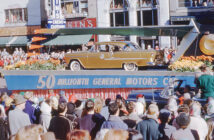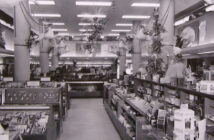
The Flint Chapter of the Benevolent and Protective Order of the Elks is part charity, part social club, part professional development, and all living history. The men and women who make up this organization are Flint’s wise and involved community members who wish to pass along their accumulated knowledge and bless those in need in their community, especially youth and military veterans.
Widely recognized today for their charitable works, the Elks began in 1867 as a group of fun-loving actors called the “Jolly Corks.” With nowhere to gather (and perhaps share a drink or two) on Sunday evenings in New York City, a man fresh off the boat from England named Charles A. Vivian started entertaining friends at his landlady’s house. Good times and pranks, including one involving a cork that led to the group’s name, were enjoyed by all; however, sobering reality soon set in for the carefree bunch when one of their members died, leaving a penniless widow and child. The men decided that they needed to do more than seek life’s joys; they needed to care for people in their sorrow.
Early in 1868, the motion was passed to organize the Jolly Corks under a new name as a lodge along benevolent and fraternal lines. As an Englishman, Vivian wanted to associate the club with the English organization, “The Royal Antediluvian Order of Buffalos,” but the majority desired a distinctively American title for the new organization. Research indicated the elk as a possible mascot, which was described in a work on natural history as an animal “fleet of foot, timorous of doing wrong, but ever ready to combat in defense of self or of the female of the species.” This description appealed to the committee as containing qualities admirable for emulation, and the title ‘Elk’ was chosen in an 8 to 7 vote.
In Flint, Lodge no. 222 of the Benevolent and Protective Order of the Elks has played an important role in the community for more than 100 years. In 1902, when Elks first began meeting Downtown, they used the second floor of the Dryden Building. As membership grew to include over 3,000 professionals in the community, a lodge building was erected in 1913 at W. Second Street. Aside from its charitable and social aspects, which were wide-ranging, the club was a cornerstone of the legal society in the city’s hey-day. Edward Soloman, a longtime member, remembers how lawyers and judges gathered at the Downtown lodge to eat lunch and discuss cases. “There were more lawsuits decided in that building than there were in the courtroom,” Soloman said fondly. C.S. Mott himself is said to have eaten lunch at the lodge twice a week. Judge Thomas Yeotis, a longtime member of the fraternal order and Genesee County’s Probate Judge in the early 70s, remembers how in 1955 he aspired to become an Elk. “When I was a young lawyer, it was as important to be a member of the Elks as it was to be a member of the bar association; it was absolutely vital to your career,” he said.
Today, the Elks lodge is located in Grand Blanc, although the original building in Flint is listed on the National Register of Historic Places. The location of the lodge isn’t the only thing that has changed. “I had always thought that Elks were rich, old, white men, and with my station in life, I didn’t think I could be one of them,” said John Dufelmeier, a Past Exalted Ruler of the Order (i.e. a former president), “but when I got out here, I realized that things had changed immensely.” Not only are men of every age, race and trade welcome, but there are now also female Elks. The current Exalted Ruler, Darlene McKone, is proof that women are not only welcome in the club, they are leading it!
Charity is a high priority for the Elks, and they focus their efforts on improving the lives of veterans and helping the disabled. Two programs in particular, called the Michigan Majors Program and the Michigan Charitable Fund, assist youth with special needs. The former program helps children under the age of 18 while the latter assists those above the age of 18 with generous scholarships to go to college, to receive vocational training, or achieve independent living. “The Elks are second only to the United States government when it comes to scholarships,” says John, “but we do so much more than write checks.” One of the biggest charities of the year for the Flint lodge is the Christmas dinner delivery. Last year, the Elks cooked, boxed and delivered nearly 250 Christmas dinners with all the trimmings. Ed, who heads up the effort, hopes to expand that number to 400 this year.
The long-standing history of the Elks, their charitable works and commitment to the community, pales in comparison only to the brotherhood that exists between its members. “Giving is always more powerful in community,” Ed says, “and that’s what we have at the Elks. I come out to dinner at the lodge by myself, but I’m never alone here.” In this age of virtual friendships and online business, the Elks club feels like a reminder of a past age: local connections, face-to-face lunches and generosity in a tight-knit community. “This club means too much to the community to disappear,” says John, “and in 100 years, it will still be around, just as it is today.”
PHOTOS BY AUTUMN D. RUMMEL
Are you interested in purchasing photos from this story? Go HERE and select the “Elks Club” category.







